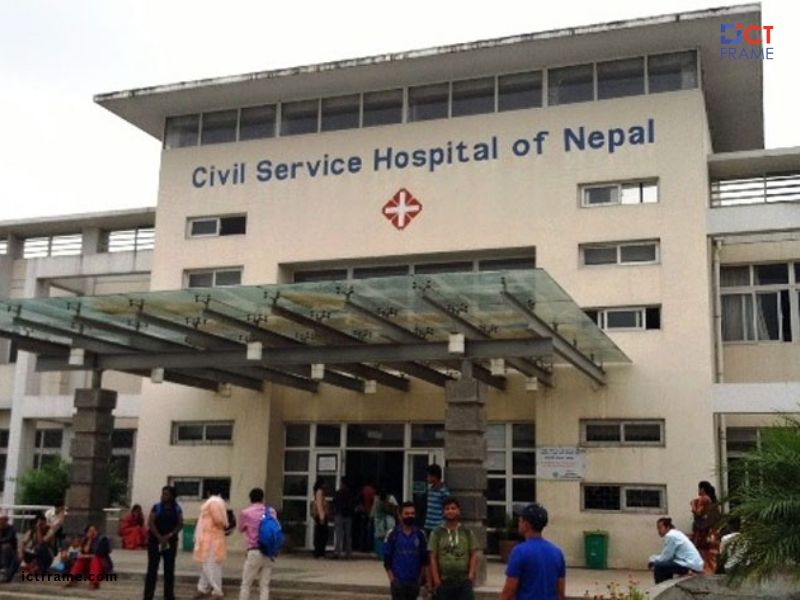Civil Service Hospital’s Medical Representatives Urged Not to Meet On-Duty Doctors
Civil Service Hospital Bans
8th October 2025, Kathmandu
The Civil Service Hospital has taken a strong, decisive step to prioritize patient care, announcing a complete ban on the entry and activities of Medical Representatives (MRs) from pharmaceutical companies within its premises.
Civil Service Hospital Bans
The move targets disruptions caused by unscheduled visits to doctors on duty. Hospital administration firmly believes these activities negatively affect the crucial, sensitive hospital environment required for proper patient treatment.
This institutional decision reflects a growing trend towards minimizing external commercial influence in clinical settings to ensure uninterrupted focus on patient needs.
Restoring Focus on Patient Care
The hospital administration released a clear notice detailing the new restriction. It highlighted that interactions between MRs and doctors during working hours created significant inconvenience for patients.
These visits often interrupt consultations and other critical medical duties, compromising the quality and timeliness of service delivery.
The ban actively seeks to reclaim doctors’ time and attention, redirecting their entire focus toward medical practice.
The administration stated that the frequent, unscheduled lobbying activities negatively impacted the sensitive environment of the institution.
A hospital should function as a place of healing, free from the commercial pressures that often accompany pharmaceutical promotion. This new policy is designed to reinforce that environment of clinical neutrality.
The Official Directive and Enforcement
The official notice issues a stern warning. It explicitly declares: “From now on, if any representative of a pharmaceutical company is found engaging in such activities within the hospital premises, action will be taken in accordance with the rules.”
This signifies the hospital’s commitment to strict enforcement. The administration plans to act decisively against any breaches, establishing a clear boundary between commerce and medical service.
This firm stance aims to secure a more dedicated professional space for physicians and healthcare staff.
The enforcement strategy will likely involve increased monitoring across consultation rooms, waiting areas, and other key departments. The hospital seeks total compliance to uphold the integrity of the medical services provided to the public.
Setting a New Standard for Ethics in Healthcare
This institutional decision resonates with international movements promoting stricter ethical standards in healthcare. Globally, hospitals and regulatory bodies increasingly restrict pharmaceutical company access to doctors.
This is done to prevent any potential undue influence on prescription habits. The practice of doctors accepting gifts or engaging in lengthy promotional discussions has faced scrutiny for years, as it can inadvertently impact prescribing objectivity and, consequently, patient care.
The Civil Service Hospital, by implementing this ban, actively promotes transparency and ethical practice within its walls.
The goal is clear: ensure that medical decisions are based purely on clinical need and the best available medical evidence, rather than commercial incentives.
This action strengthens the credibility of the doctors and the hospital system overall.
ICT Solutions as an Alternative
While physical visits are now barred, communication channels for sharing essential pharmaceutical information must remain open.
The Medical Representatives’ role historically included disseminating crucial updates on new drugs, clinical trials, and treatment advances. In this modern context, this responsibility increasingly shifts to digital platforms.
Pharmaceutical companies must now leverage ICT and digital media. They can use email newsletters, virtual presentations, and dedicated professional portals to communicate product information directly to the hospital’s pharmacy and procurement departments.
This digital shift ensures that doctors and clinical staff still receive necessary scientific information without interrupting the flow of patient care.
Adopting these remote communication methods creates an efficient, less disruptive model for the industry’s interaction with healthcare providers, supporting a better hospital environment.
The focus moves from salesmanship to pure informational exchange. This adaptation proves critical for the pharmaceutical sector moving forward.
Impact on the Hospital Environment
The ban is expected to result in several positive changes for the Civil Service Hospital.
Doctors will experience fewer interruptions, improving their efficiency and reducing stress. Patients will benefit from focused attention during appointments, leading to improved satisfaction and potentially better diagnostic and treatment outcomes.
By eliminating the clutter and distraction of promotional activities, the hospital creates a calmer, more professional atmosphere.
This commitment to an unimpeded hospital environment ultimately serves the public interest, underscoring the hospital’s dedication to its primary mission: providing excellent healthcare.
The administration is confident the new policy will effectively safeguard both the medical staff’s time and the patients’ well-being.
For more: Civil Service Hospital Bans








